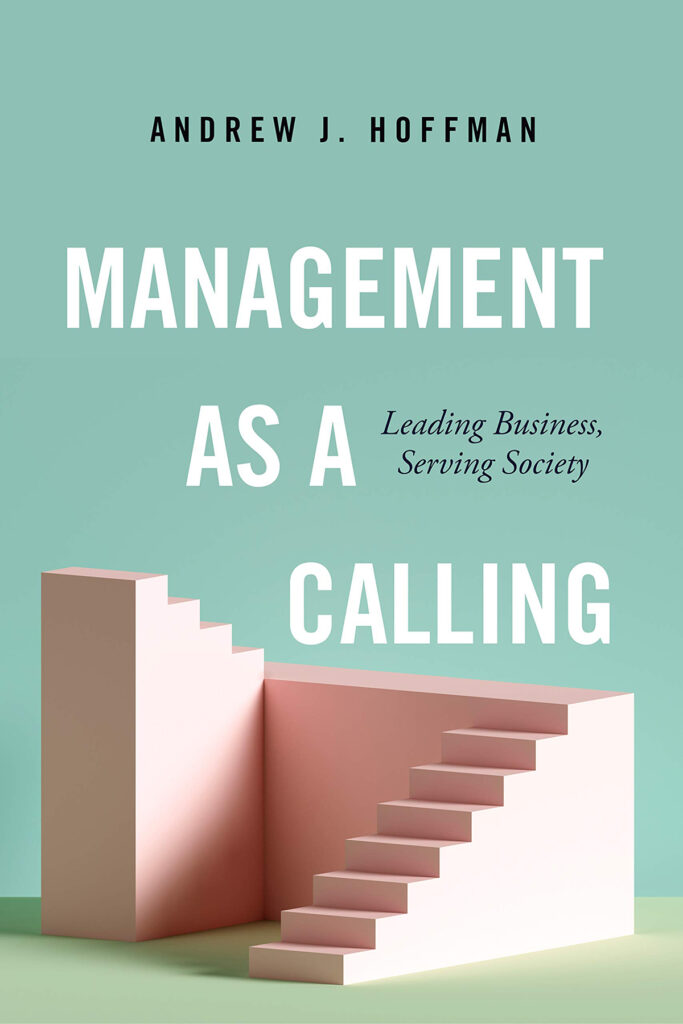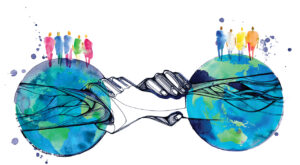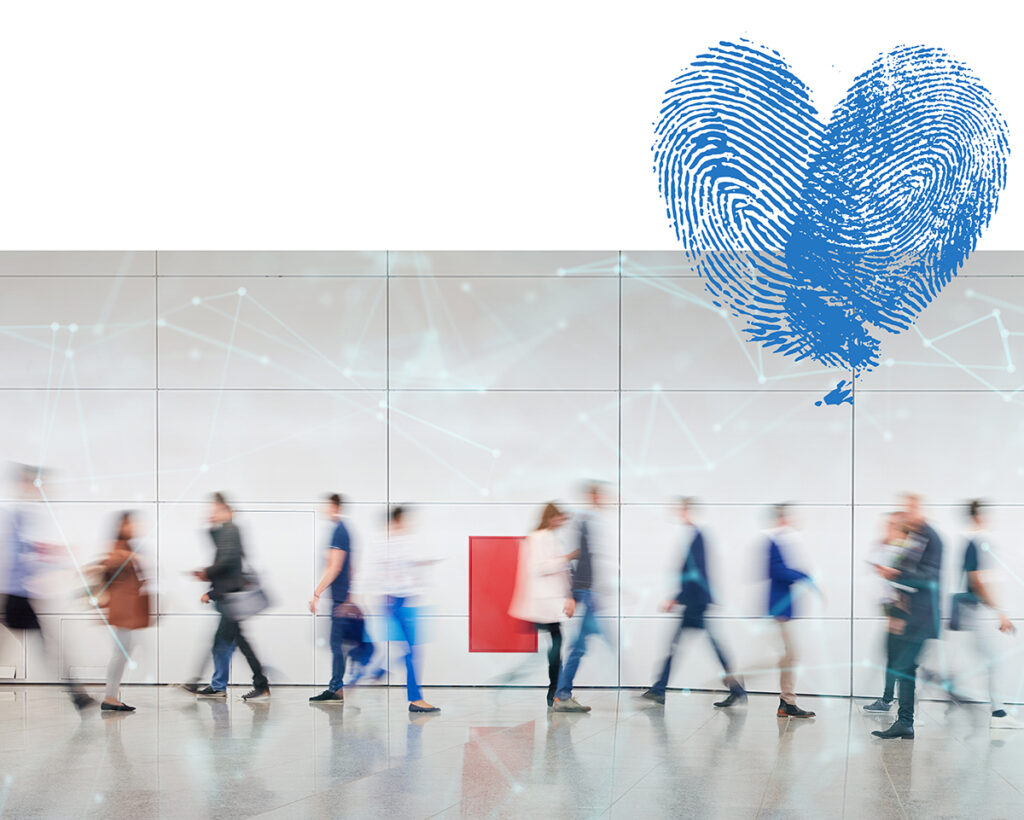Mexico could build a favorable environment for social entrepreneurship and for companies to meet global sustainability goals. For this, the relationship between companies, government and civil organizations must once again be harmonious.
The pandemic brought profound transformation to the corporate world around the planet. However, business leadership there, which is now more humane, free and empowered, has yet to spread to other social sectors that cannot focus as much on sustainability because they are just trying to survive. Likewise, some governments have better incorporated the lessons of the current crisis, creating better environments for social entrepreneurship.
Other countries, however, will need more time to learn and Mexico could be one of them. In an interview with Istmo, María del Carmen Gutiérrez, General Director of the Bringas-Haghenbeck Foundation and Mary Conway Dato-on, Professor of International Business and Social Entrepreneurship at the Crummer Graduate School of Business, describe the new environment that is opening up as a post-pandemic crisis opportunity for countries that want to take advantage of it for the benefit of their societies.
Síguenos en Google ¿Noticias y descubre contenidos relevantes? para la persona de la Alta Dirección.
DISRUPTIVE AND EMPATHIC LEADERS
The pandemic, with its necessary containment measures and the closure of economies around the world, leaves an inevitable balance and has returned more than 150 million people to extreme poverty. In addition, inequalities are increasing in all areas of the planet. Faced with these new challenges, according to María del Carmen Gutiérrez, enterprise has to go beyond its role as job generators. In her opinion, there will come a point when this health emergency will end and a difficult economic emergency will begin. “It is essential that they play a highly participatory role and get involved in social causes.” At the same time, it is necessary to prepare new leaderships within enterprise, so that they know how to handle more impactful causes.
“The crisis that faces us is health-related, economic and, based on all of this, psychological,” Mary Conway Dato-on adds; she agrees that today it is necessary to lead “in order to contribute to the good of society. We must go beyond simple notions of social responsibility and see these challenges as a strategic concern for business.” In her opinion, business leaders have to think beyond profit, and she quotes Andrew Hoffman (Management as a Calling, 2021), pointing out that universities and business schools have a responsibility to prepare better business leaders who are able to focus on change. “The power that comes with being a business leader accompanies you beyond the walls of the company,” she notes.
Te recomendamos este webina r con el tema: Edmundo Vallejo «Entre empresarios: del shock a la reflexión a la acción»
How did the pandemic influence company culture? During these difficult days, practically no company was exempt from internal crisis, whether due to the loss of collaborators’ lives or those of loved ones. They were full of vulnerability, in turn creating a delicate environment, which all businesspeople must take into account, Gutiérrez points out. Today, leadership must take on the need to keep work teams healthy from all points of view, including emotionally.
For starters, as Conway notes, today’s employees do not want to go back to the job they had before. “They don’t want to go back to pre-pandemic employment conditions. They have realized that there is an ecosystem that has to be taken into account, that they have children at home who do not go to school and that hours that were previously covered cannot be covered. Before, employers weren’t thinking of their employees as humans, but as ‘assets,’ as resources they can use to advance their own goals. Leaders now need to think of more systemic solutions, and this implies a mindset shift.


As a result, change to company leadership must take place across multiple aspects and at all levels. This environment has been extremely disruptive, which requires a new leader who is very proactive and open to change, where new crises cannot be ruled out. Above all, he or she must be results-oriented, says Gutiérrez. “The ecosystem has changed. You have to learn to trust your people, to dialogue, to develop talent, to encourage teams to make decisions in a more proactive and dynamic environment; because this is going to add up. These leadership styles are here to stay. If they are ignored, it will be very difficult to get ahead.
Conway also noted that empathy is now a requirement. From her point of view, in terms of leadership models, Mexico mostly practices an authoritarian one. Within that model, a leader only cares about being obeyed and is profoundly ignorant of the other. “This model no longer works. Leaders need to think beyond what employees do, towards who they are as people. This is something we don’t teach much in business schools.”
For Gutiérrez, this is very much related to transversal leadership, where top management and even middle managers can start participating as specialists in a single discipline. They need to develop diverse skills related to the art of managing. “I think many businesspeople were pleasantly surprised with the results of their work teams in an environment where they may have had to work from home, but results were great.”
We must learn to identify leaders so that decisions can be made at all levels; employees must be trained in this skill, with a focus not only on the client, but also on the company’s own team. But not everything is disruption. Many established global business systems can be a great help to companies in flux; for example, good corporate governance and activity surrounding technology adoption had already begun to encourage change in the years leading up to the pandemic.
In order to contribute to
the good of society,
we must go beyond
the simple notions of
social responsibility and
see these challenges as
a strategic concern for businesses.
BEYOND A GOOD CAUSE
For María del Carmen Gutiérrez, in this sense, there is a huge area of opportunity, when it comes to non-profit organizations, a large part of which must take on institution building in a serious way. “This type of project starts with good causes, but you have to give it a structure. I say this from experience: good corporate governance –which is mandatory– supports, guides, backs, and advises you. You can also encourage the use of best practices, replicating them and maintaining a hunger for learning from people who have already demonstrated solid and accomplished talent.”
The issue of technology cannot be ignored because it is essential, she adds. Nonprofit organizations need to incorporate technological models, knowledge that can largely be learned from large companies.
Mary Conway agrees with this, describing NGOs as starting with a cause, but then not thinking much about the theory of change and lacking metrics to evaluate their results, because they do not have a strategy or a structure. “Sometimes, NGOs only focus on service, as if it were magically going to change the world. They must assess how things are being done.”
Te recomendamos leer: «Necesitamos más personas que sean agentes de cambio»
In turn, companies can learn from NGOs about their understanding of social causes. “Building up sensitivity and knowing what is happening in employees’ family environments, creating environments that promote calm will, in the long run, rebound to the company itself,” Gutiérrez describes, adding that they can also learn to do more with less. “It would also be very interesting for businesses to learn to make alliances, something that NGOs do very well. Add external and even internal collaborations.”
How advanced is Mexico in social responsibility and sustainability compared to the rest of the world? This remains an open question given the obvious lag in formal employment and the disparity that can exist between the corporate culture of large companies and that of hundreds of thousands of small and micro companies.

Andrew Hoffman, 2021
SOCIAL ENTREPRENEURSHIP AROUND THE WORLD
There are a variety of leaders in this field around the world, Gutiérrez points out, depending on the social cause on which they focus. “There are those who focus more on ecology, or the fight against hunger, or education or other social issues.” She points to countries such as Norway or Denmark and notes that, since the United Nations Global Compact in 2000 and the adoption of sustainable development goals in 2015, many companies around the world have joined this global effort. Yet, many companies in Mexico have not yet joined when compared to countries like Spain, whose corporate network following the 2030 Agenda became very broad.
When it comes to social entrepreneurship, “Nirvana” has not yet been reached, Conway adds, but a good relationship between the government, the civil sector and business is a good sign of it. When each of these parts respects its role in the ecosystem, the system works better. She describes countries where she has conducted research. For example, in the United States, there are good examples of social entrepreneurship and a broad ecosystem, allowing for beneficial networking. Likewise, “We have a spirit of entrepreneurship and a high tolerance for risk in our businesses,” she says. Finally, there are legal mechanisms that facilitate this kind of operation, such as low profit limited liability companies. “If a for-profit organization wants to have a social or environmental commitment at the same time, we already have systems in place for it to do so,” she describes.
This model no longer works.
Leaders need to think beyond
what employees do,
towards who they are as people.
This is something we don’t
teach much in business schools.
On the other hand, in India, which she describes as “the country of Nobel laureates in Economics, Peace, Literature,” she points out that there are many people to learn from. “A study from the Global Entrepreneurship Monitor asked entrepreneurs why they wanted to start a business. The most popular answer in India is ‘to make a difference in the world.’ There, entrepreneurs are already thinking about how to make changes, from the start of their business.”
Conway points out that some studies classify Mexico as the worst country in which to carry out social enterprises. Others argue that there are examples such as Endeavor Mexico, New Ventures Mexico, and Angel Ventures, which was previously Initiative Mexico. “There are already many universities dedicated to this. There is a system, but they don’t have all the mechanisms yet.”
For Mary Carmen Gutiérrez, we must start “significantly developing our understanding of the causes to problems and not their effects. Donors attribute credibility to this approach, where it feels like the money they contribute really focuses on root causes.” A good definition helps to generate models that are not so much support-based, but rather focus on interventions “that transform realities at a deeper level.”
However, Mary Conway warns that Mexico is moving both forward and backwards on the issue of social entrepreneurship. “Although the current government claims to be for the people, in reality, it has significantly altered the support previously provided to social entrepreneurship. The current climate can be seen as a hostile institutional environment. A legal social entrepreneurial status does not exist. There is also a history of the government’s dependence on social funds. Some think that money will either come from the government or from the church, and both are welfare models. If this system shifts towards one that starts to empower agents of change, so that, with a little support and resources, they can move forward, they will not have to wait to give support. Mexico lacks legal structures, resources, infrastructure and, although organizations do exist, they sometimes work disjointedly without making alliances, which would allow them to advance their work.
Conecta con nosotros, ahora en TELEGRAMA: https://t.me/ISTMOconnection
To this Gutiérrez adds that, “You have to understand that we are now in a moment with great opportunities for growth. This country needs a lot for us to move forward, to get through the crisis in the best way possible. I insist, this is just beginning, I believe it will take time for us to reach a level of stability that allows us to continue what we do, but it is a time of opportunity for entrepreneurs and organizations to professionalize and learn from what the pandemic has to teach us.
Conway concludes, “Citizens and consumers want change. Consumers will question whether companies have done something during the crisis. If not, they can take their money elsewhere. The last two earthquakes provide a good example of how citizens have changed by empowering themselves, without waiting for the government to act. The government now has more systems to adequately respond; there will be other crises and it will be good to know what they learned, so that they can use it in the future.






